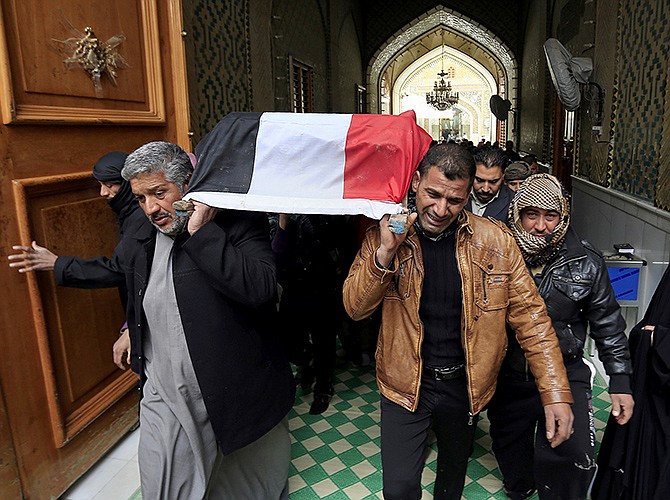BAGHDAD (AP) - Iraq's prime minister urged Fallujah residents on Monday to expel al-Qaida militants to avoid an all-out battle in the besieged city, a sign that the government could be paving the way for an imminent military push in an attempt to rout hard-line Sunni insurgents challenging its territorial control over the western approaches to Baghdad.
The militants' seizure of Fallujah and parts of nearby Ramadi, once bloody battlegrounds for U.S. troops, has marked the most direct challenge to Prime Minister Nouri al-Maliki's government since the departure of American forces two years ago. Both the U.S. and its longtime rival Iran view the escalating conflict with alarm, with neither wanting to see al-Qaida take firmer root inside Iraq. Washington has ruled out sending in American troops but recently delivered dozens of Hellfire missiles to help bolster Iraqi forces.
Tehran signaled Monday that it is willing to follow suit, saying it is ready to help Iraq battle al-Qaida "terrorists" by sending military equipment and advisers should Baghdad ask for it. It is unclear whether Baghdad would take up the Iranian offer, made by Gen. Mohammad Hejazi, the Iranian Army deputy chief-of-staff, in comments to Iranian state media. He ruled out the sending of ground troops across the border.
Any direct Iranian help would exacerbate sectarian tensions fueling Iraq's conflict, as Iraqi Sunnis accuse Tehran of backing what they say are their Shiite-led government's unfair policies against them. Iran has the power to sway al-Maliki's political fortunes ahead of upcoming elections through its deep ties to Iraq's major Shiite factions, which have dominated government offices and security forces since the U.S.-led invasion toppled Iran's arch-foe Saddam Hussein in 2003.
Iraqi government troops have surrounded Fallujah, which was overrun by fighters from al-Qaida's Iraq branch last week. The city is just 40 miles west of the Iraqi capital, Baghdad. It is located in the vast Sunni-dominated and largely desert province of Anbar, which borders Syria, where al-Qaida-linked groups are among the most formidable fighters among the rebels trying to topple President Bashar Assad.
Al-Maliki did not say how he expects Fallujah residents and pro-government tribesmen to push out the militants. In his message, broadcast over state TV, he also urged Iraqi troops to avoid targeting residential areas. Dozens of families have begun fleeing Fallujah to nearby towns, crammed in cars loaded with their belongings.

